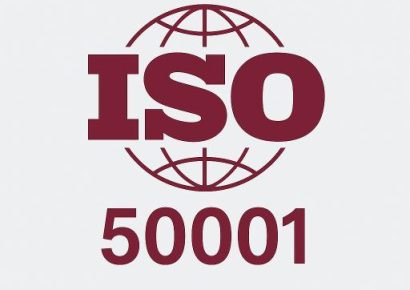Course Overview
Course Overview
The ISO 9000 Development and Implementation Training Course provides participants with the practical knowledge and tools to design, implement, and manage a Quality Management System (QMS) aligned with ISO 9001:2015, the core standard within the ISO 9000 family. This course is ideal for organizations seeking to improve quality performance, meet regulatory or client expectations, and prepare for ISO 9001 certification.
The course is highly practical and is intended for professionals tasked with developing QMS frameworks, integrating quality processes, or driving continuous improvement.
Duration: 5 Days
Learning Outcomes
By the end of this course, participants will be able to:
- Understand ISO 9000 principles and ISO 9001:2015 requirements in detail.
- Design a QMS framework tailored to organizational needs and objectives.
- Develop quality policies, process maps, procedures, and records.
- Integrate risk-based thinking and continual improvement into quality systems.
- Align quality management efforts with customer and stakeholder expectations.
- Prepare the organization for ISO 9001 certification readiness and surveillance audits.
- Lead internal implementation teams through practical stages of QMS rollout.
Course Content
Day 1: ISO 9000 Fundamentals and Planning the QMS
- Module 1: Introduction to ISO 9000 and ISO 9001:2015
- Key Definitions, Concepts, and Purpose
- Process-Based Approach and Quality Principles
- Overview of Clauses and High-Level Structure (Annex SL)
- Module 2: Clause 4 – Context of the Organization
- Identifying Internal and External Issues
- Understanding Interested Parties and Their Needs
- Defining Scope and Boundaries of the QMS
- Module 3: Clause 5 – Leadership and Commitment
- Roles and Responsibilities
- Developing a Quality Policy
- Ensuring Engagement of People
Day 2: Quality Planning, Objectives, and Risk Management
- Module 4: Clause 6 – Planning
- Identifying Risks and Opportunities
- Setting Quality Objectives
- Planning for Change and Strategic Alignment
- Module 5: Clause 7 – Support Functions
- Resource Management and Competency
- Awareness, Communication, and Documented Information
- Document Control Systems
Day 3: Operational Control and Core Quality Processes
- Module 6: Clause 8 – Operation
- Operational Planning and Control
- Requirements for Products and Services
- Design and Development of Deliverables
- Control of External Providers (Suppliers/Outsourcing)
- Module 7: Process Mapping and Work Instruction Development
- Identifying Core vs Support Processes
- Developing SOPs and Process Flowcharts
- Establishing Key Controls and Interfaces
Day 4: Monitoring, Performance Evaluation, and Internal Audits
- Module 8: Clause 9 – Performance Evaluation
- Monitoring, Measurement, and Analysis
- Internal Audit Programs and Management Reviews
- Using Data to Drive Improvements
- Module 9: Clause 10 – Improvement
- Non-Conformity and Corrective Action Processes
- Root Cause Analysis Tools
- Continuous Improvement Techniques (PDCA, Kaizen)
Day 5: Implementation Planning and Readiness for Certification
- Module 10: QMS Implementation Strategy
- Implementation Phases and Milestones
- Change Management and Staff Involvement
- Integrating with Other Management Systems (ISO 14001, ISO 45001)
- Practical Group Exercise:
- Develop a Mini-QMS and Quality Manual
- Create a Certification Readiness Plan for a Simulated Company
- Course Wrap-Up and Final Review
Course Difficulty: Intermediate to Advanced
Curriculum
- 11 Sections
- 32 Lessons
- 5 Days
- Module 1: Introduction to ISO 9000 and ISO 9001:20153
- Module 2: Clause 4 – Context of the Organization3
- Module 3: Clause 5 – Leadership and Commitment2
- Module 4: Clause 6 – Planning3
- Module 5: Clause 7 – Support Functions3
- Module 6: Clause 8 – Operation4
- Module 7: Process Mapping and Work Instruction Development3
- Module 8: Clause 9 – Performance Evaluation3
- Module 9: Clause 10 – Improvement3
- Module 10: QMS Implementation Strategy3
- Practical Group Exercise2





